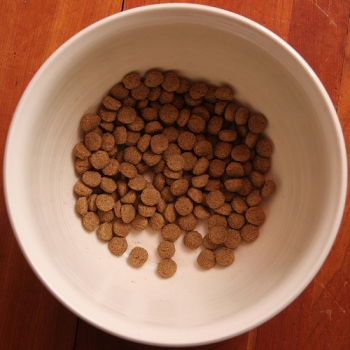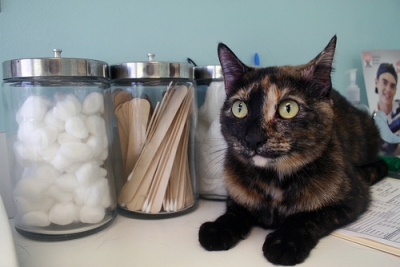
Cancer diets should be high in protein, contain some fat and low or no carbohydrates.
Dogs with cancer don’t usually die of the cancer itself, but more often from complications such as liver or kidney failure. This can be controlled with an appropriate diet. A dog with cancer needs adequate proteins and cell membrane compounds (omega 3, 6 and 9 fatty acids). He should not be fed grains, since dogs are unable to digest them. If there are grains in commercial food, they should be listed as one of the last ingredients, with meat as one of the first. Dogs should also eat additional animal protein sources. Some vets advocate raw foods while some say cooked food is best.
Weight loss is a big concern with cancer patients. Pets who lose weight are less likely to survive cancer than those who don’t. When buying commercial food for dogs or cats with cancer, it is best to buy prescription food for pets under stress, “premium” foods or puppy and kitten food. However, if a cat or dog is obese, it is important not to feed him foods which will encourage weight gain.
These guidelines are general; it is important to consult your vet regarding the dietary needs of your individual ill pet.


